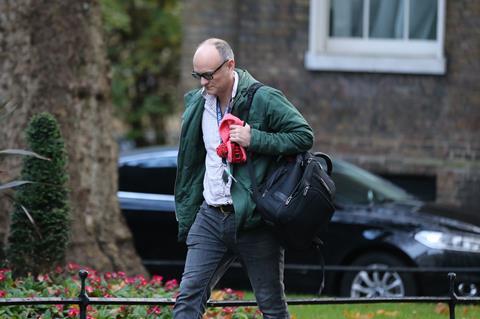The current public inquiry into the handling of the Covid crisis has so far painted a deeply unflattering picture of the way central government arrives at decisions. Among an extraordinary amount of mud-slinging from former advisers, a couple of things stand out.

Firstly, there is former No 10 director of communications Lee Cain’s assertion that a lack of diversity at the top table fuelled many bad calls. In written evidence, Cain said: “I remember asking in the Cabinet room of 20 people, how many people had received free school meals. Nobody had – resulting in a policy and political blind spot. This was a huge blunder.”
Cain said the result was a real lack of understanding of what ordinary families would go through during lockdown.
In general, any decision made without a good grasp of consequences is liable to be a poor one.
Secondly, the testimony of foul-mouthed former adviser Dominic Cummings reminds us of the attempts he made to demolish Whitehall structures and rebuild them in a way he deemed preferable.
At the time, Cummings seemed especially keen on diversity of thought – though oddly dismissive of diversity policies. You may recall that a couple of months prior to the first lockdown, Cummings set out to hire “weirdos and misfits with odd skills” to join him at No 10.
In his January 2020 job ad, Cummings wrote: “People in [Whitehall] talk a lot about ‘diversity’ but they rarely mean ‘true cognitive diversity’.” He added: “If you want to figure out what characters around [Russian president Vladimir] Putin might do, or how international criminal gangs might exploit holes in our border security, you don’t want more Oxbridge English graduates.”

Whatever you make of Cummings, Cain or the other former insiders, it seems pretty clear that central government decision-making at the time was at best deeply flawed and at worst completely chaotic.
The testimony will have the ring of truth to any business on the receiving end of government or ministerial intervention over the past few years.
This week we ponder the Levelling-up and Regeneration Bill’s transition on to the statute books. Despite four years of progress through parliament and countless amendments, the new act is still just “a thumbnail sketch” on some of its most significant measures, according to experts.
Bringing the act to bear will require bundles of secondary legislation and further consultations – pending decisions that may or may not prove wise.
On proposed changes to the National Planning Policy Framework (NPPF), there is perhaps too much diversity of opinion, given that the NPPF consultation held between December 2022 and March this year elicited more than 26,000 responses. Who can guess what conclusions might emerge once officials have finished wading through all those views?
Similarly, new rules to let councils hold planning meetings as hybrid sessions with online participants will surely lead to a broader set of views being heard. That won’t necessarily be a good thing for parties keen on building things.
While diversity of thought very clearly leads to more considered decisions, unfortunately they won’t always go the way we’d like.





























No comments yet